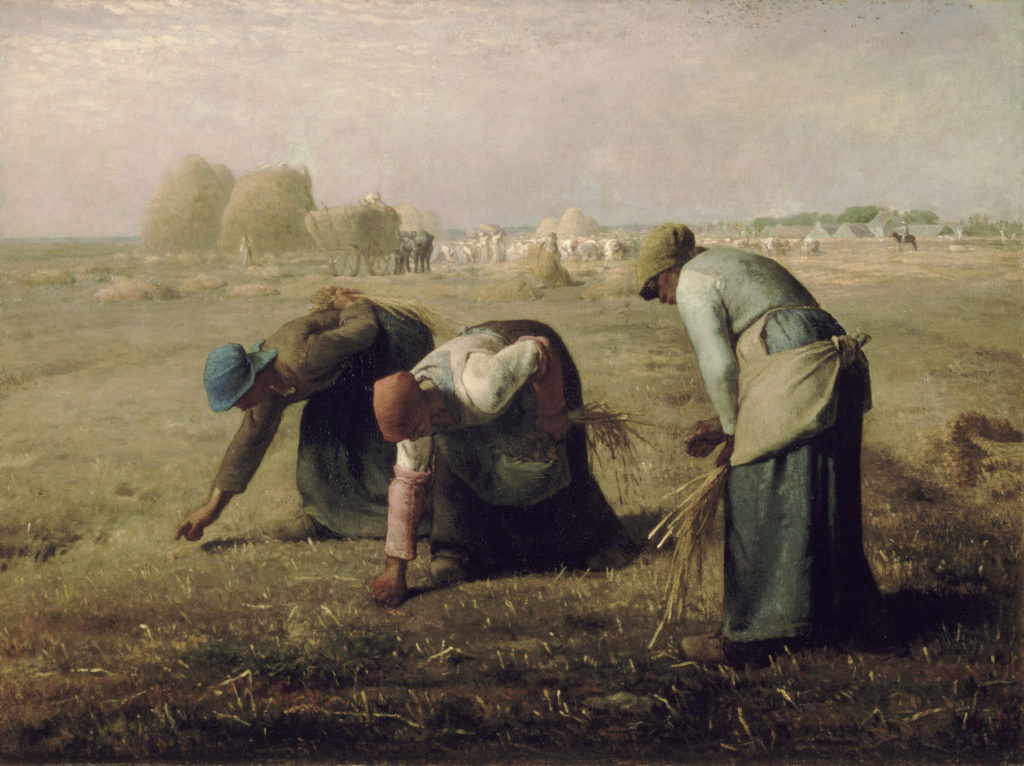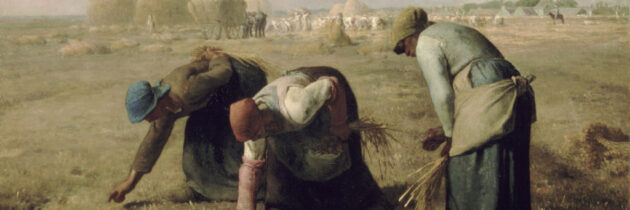Sabbath and the End of Work
 “What do you want to be when you grow up?”
“What do you want to be when you grow up?”
When I was a child and was asked this question, I said I wanted to be a missionary astronaut.
In one sense that’s a very fantastical response, but in another it’s very ordinary—I was asked what I wanted to be and my response, as with most children conditioned by our society, was to give a job description.
When I eventually became an adult and was studying theology at school, I was inevitably asked “What are you going to do with that?” Again, the expected answer was a job.
And now that I’m in the adult world? When I meet new people the inevitable first question people ask is, “What do you do (for a living)?”
Human beings are creatures of work, we’ve always been so. So, there’s nothing inherently wrong with the fact that much of our identity can be tied up with what we do. Yet, there is a danger in this close identification, and it’s a danger that becomes particularly acute in our modern world of career choices. The danger is in coming to think that our ultimate purpose, our telos, lies in what we do for a living. This can be seen pretty clearly when you shift the above secular questions to their religious counterpart—what is my calling? Go to any youth group and talk to the seriously religious teenagers about their lives and inevitably you’ll get stories of a sense of call to one career or another. It’s telling that the word for which calling is a translation—vocation—has become a synonym for career outside of Roman Catholic circles.
Again, there’s nothing inherently wrong with thinking that God may have called us to a particular line of work, but that call must be framed inside a larger context. Ultimately, all human beings share one call—to attain to communion with God in his heavenly kingdom, to worship him perfectly and love one another fully. Work is good, but earthly works will pass away.
Lacking this perspective, the identification of oneself with one’s career can become toxic. I’ve seen many friends weighed down with depression and anxiety wondering what their call is, what job will give them the greatest fulfillment. I’ve also seen friends convinced that a particular job is their calling find themselves confused and angry at God when that career seems to be a continuous dead end.
A little bit of historical perspective shows up the absurdity of this anxious discontent. For most of history (and in most of the world today for that matter) the vast majority of people had no choice what they did for a living. You were what you were born into. To be clear, I very much prefer the world we live in today with the choice to pursue fulfilling work. Yet, the historical reality proves that it is absurd to think that God put us on this earth to seek out the perfect job, and then to tie our identity fully into that. If that was the purpose of humanity, then God created a world in which most humans were innately unable to fulfill their purpose.
Again, our identity, first and foremost, is creatures destined for communion with God.
Yet, the reality is that this identification of ourselves with our work is deeply ingrained in us. It’s not simply enough to know the reality. We have to act on it. Thankfully, God has provided for this need. This, surely, is one of the purposes of Sabbath. Sabbath rest reminds us that we are creatures. It reminds us that our primary purpose is not the work we do, but the love of the God we serve. So, without becoming legalists about it (for the Sabbath was made for man, not man for the Sabbath) let us redouble our efforts to take true Sabbath in the presence of God, to focus ourselves on our ultimate destination and thereby put the work we do in its proper context.
Kevin G.
Latest posts by Kevin G. (see all)
- All the Company of Heaven: Praying to the Saints - October 31, 2016
- C.S. Lewis, Roman Catholicism, and Bad Apologetics - August 1, 2016
- Sabbath and the End of Work - May 24, 2016

